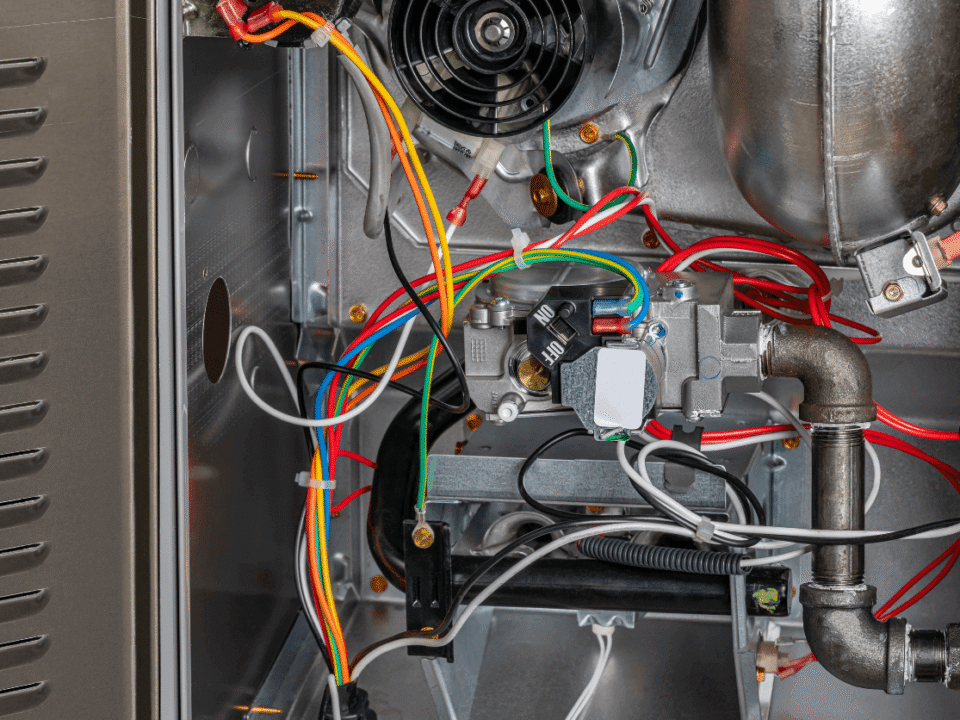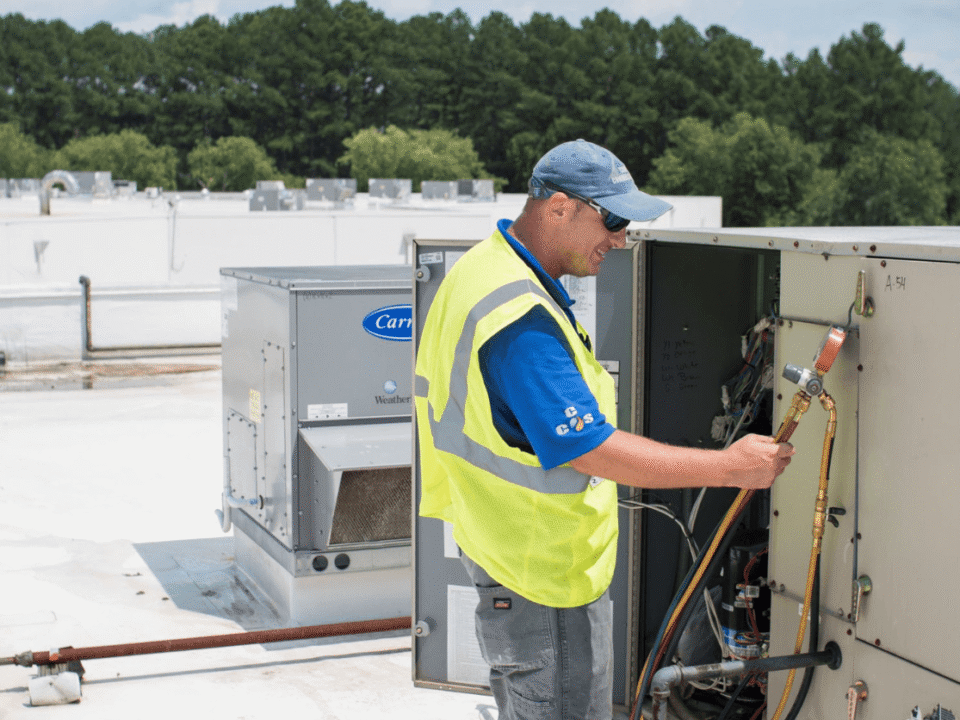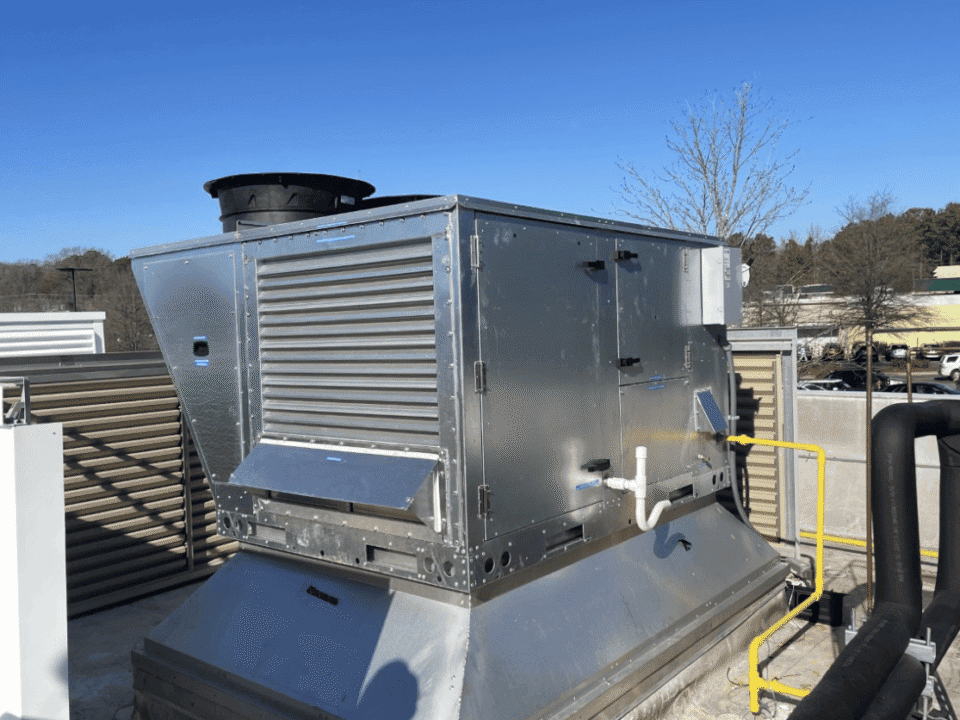
Duct Sealing: Preventing Energy Loss in Your HVAC System
March 20, 2025
Indoor Air Purification Systems: Which One Is Right for You?
April 24, 2025Reducing humidity for indoor comfort
To keep your home comfortable and healthy, it is important to manage indoor humidity levels. For homeowners in Raleigh and Durham, the local climate presents unique challenges. From sticky, humid summers to dry, cooler winters, changes in humidity can impact your living environment. This raises an important question: are humidifiers and dehumidifiers essential for residential HVAC systems?
Why Humidity Matters
Humidity affects more than just your comfort: it greatly impacts your health, home structure, and energy efficiency. Ideally, indoor humidity levels should remain between 30% and 50% to sustain an optimal balance. Levels higher or lower than this range can lead to a variety of problems.
When humidity levels are too high, you might see issues like mold growth. Mold can harm your home and lower air quality. Such conditions exacerbate allergies and respiratory issues, making it difficult for household members to live comfortably.
Meanwhile, excessively low humidity dries out your skin, lips, and nose, causing discomfort. Breathing issues may worsen under these circumstances, particularly for individuals with asthma or sinus problems. Low humidity can also damage wooden furniture and flooring. Keeping indoor air moisture balanced is important for your health and the life of your home’s belongings.
Humidifiers: Adding Moisture to the Air
During winter, indoor humidity usually drops. This happens because of the cold air outside and heating systems that dry the air. This can lead to uncomfortable symptoms such as dry skin, scratchy throats, and irritated noses. Respiratory issues like sinus infections, bronchitis, or asthma can worsen.
A humidifier provides a simple yet impactful solution during these months. You can choose a portable humidifier for certain rooms or a whole-house humidifier for your HVAC system. Both types add moisture to the air. This helps reduce problems caused by dry indoor conditions.
Dehumidifiers: Keeping Excess Moisture in Check
During summer, high humidity can make your home feel sticky and uncomfortable, even when your air conditioner is running. Excess moisture not only impacts your physical comfort but also encourages mold and mildew growth. This can create unsightly stains, harmful odors, and most alarmingly, a hazardous living environment. Mold spores contribute to poor indoor air quality and can trigger allergies, asthma attacks, and respiratory problems.
Dehumidifiers tackle this issue by removing excess moisture from the air. These devices prevent mold growth, reduce odors, and even protect your home’s structural elements. Excess humidity can get into walls, floors, or insulation. This can cause wood rot or peeling paint over time. By extracting moisture, dehumidifiers preserve the integrity of your infrastructure.
Maintaining the right humidity in humid areas can also save on energy bills. When humidity is high, air conditioning systems must work harder to cool the home. This leads to higher energy use. By using a dehumidifier with your HVAC system, you can use energy more efficiently.
Are These Devices Always Necessary?
The need for these devices ultimately depends on your home’s unique conditions and your HVAC system’s capabilities. Modern HVAC systems often include humidity controls to help maintain an optimal indoor balance. However, certain factors – such as extreme weather fluctuations or an older HVAC system – can create gaps in this functionality. Homes with inadequate insulation or poor ventilation may also require additional tools to keep humidity levels in check.
In a well-sealed and ventilated home with an advanced HVAC system, you may not need extra devices. If comfort, health problems, or structural changes are ongoing issues, getting a humidifier or dehumidifier can help. Many homeowners find these devices useful during certain seasons.
Our HVAC experts can assess your home’s humidity levels and recommend whether these tools are essential for you.
Trust the HVAC Experts in Raleigh, NC
At Carolina Commercial Systems, our team specializes in helping homeowners and businesses maintain optimal indoor humidity levels. If you need help adding a humidifier or dehumidifier to your HVAC system, we can assist you.
With years of expertise, we provide customized advice tailored to solve comfort and health problems caused by humidity. Curious if your home requires specialized devices to regulate its air? Contact us today to discuss your options and get expert advice tailored to your home!
And don’t stop there: take proactive steps to keep your HVAC system optimized year-round. Learn how in our guide to preventative HVAC maintenance.



